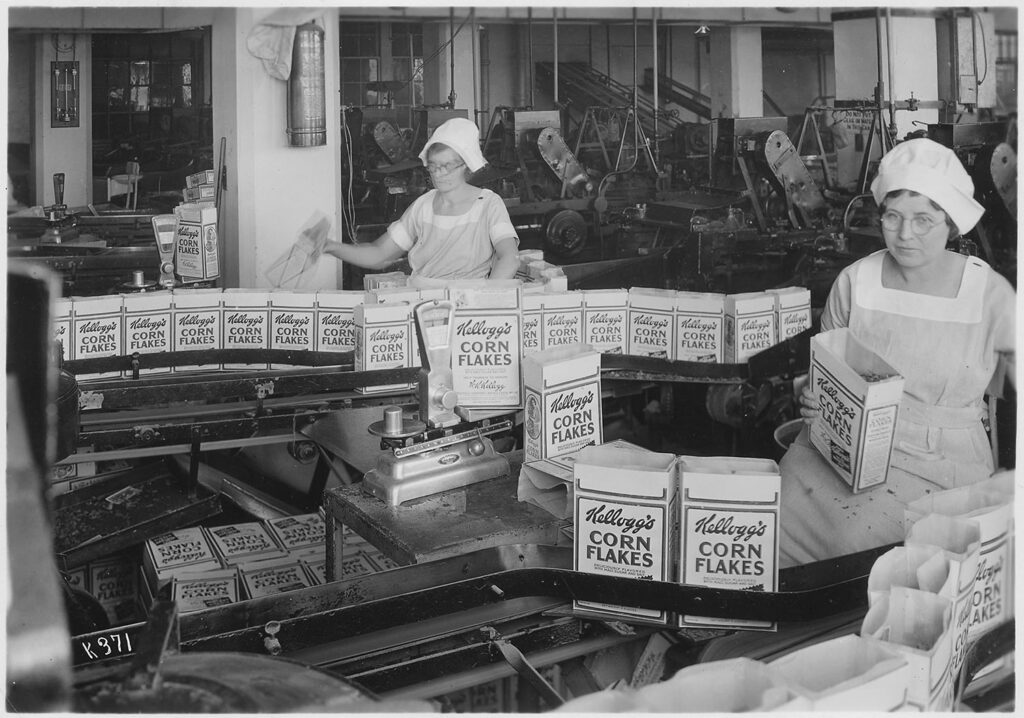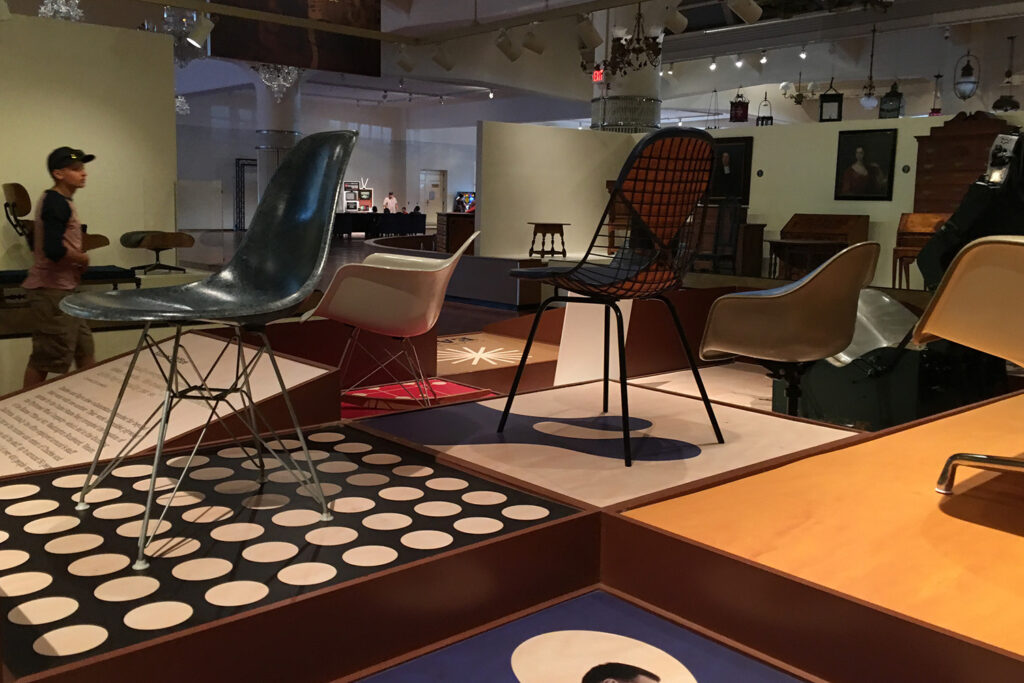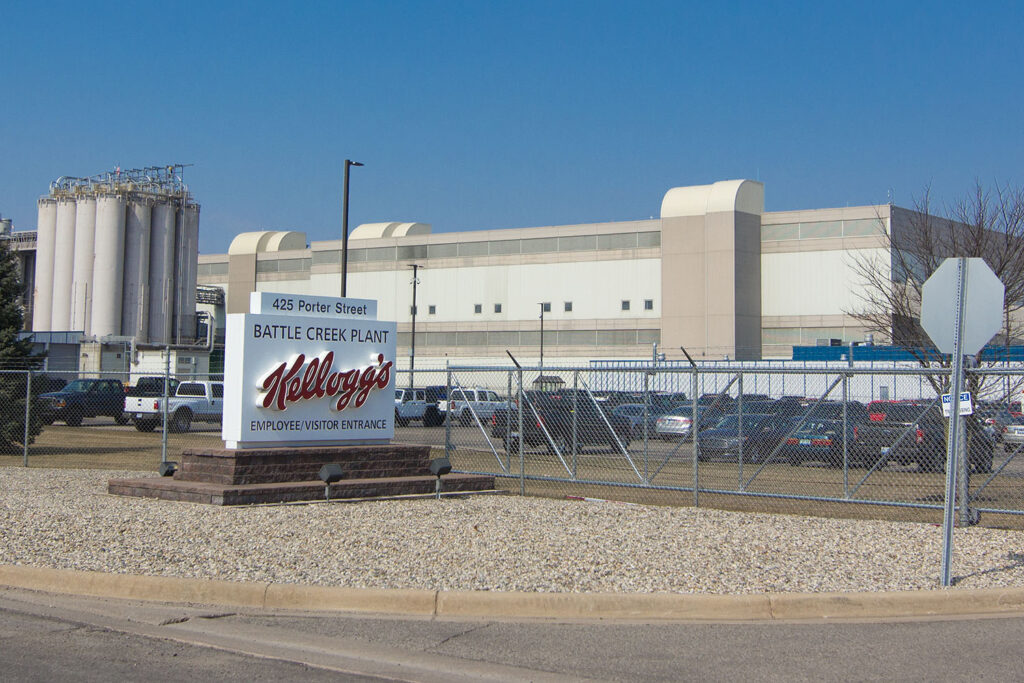Some of West Michigan’s beloved businesses are making headlines for all the wrong reasons, as closures and sales mark the end of eras and leave many Michiganders feeling the loss of both jobs and rich history in their communities.
Last week alone, three well-known Michigan businesses massively shifted their stake in the state.
Kellogg’s, based in Battle Creek, sold the cereal manufacturing leg of its company to Ferrero, an Italian chocolate company, for $3.1 billion. Howard Miller, a Zeeland-based clock-making company, is closing its doors after almost 100 years in business in West Michigan. And MillerKnoll, a conglomeration of the Michigan-based furniture company Herman Miller and its recent acquisition Knoll, is shutting its Muskegon facility.
Not only are Michiganders losing their jobs, but these communities are losing a part of their history. Grand Rapids is known as “Furniture City,” and two large and longstanding furniture businesses are either closing or downsizing.
With the sale of Kellogg’s, Ferrero is currently committing to keeping the company’s headquarters in Battle Creek. Even with the company’s deep roots in the city, the new leadership signals a shift away from the success of Michigan-grown businesses, with Kellogg being one of the biggest examples.
Kellogg began in 1906 with the opening of the company’s first plant, called “Battle Creek Toasted Corn Flake Company.” With only 44 employees, W.K. Kellogg began his dream of inventing new breakfast foods.

Most notably, Kellogg’s created a new cereal to feed Britain during World War II, provided breakfast to the members of the Apollo 11 mission, and added vitamin D to all children’s cereal to promote better health.
In 2023, the firm split into two public companies: WK Kellogg Co and Kellanova. WK Kellogg Co continues to focus on dry cereal production, while Kellanova handles snack foods, including the popular Pop-Tarts, RXBAR, and Eggo. Kellanova not only took the snacks in the split but also opened an additional headquarters in Chicago. At the time of the announcement, Kellanova said no employees would be required to relocate, but there was a catch—80% of the company’s revenue is now based in Chicago, from products like Rice Krispie Treats and Cheez-It.
Since the companies separated, WK Kellogg has noted a significant decrease in sales, citing a shift in consumer trends, with sales potentially dropping close to 3%.
Howard Miller also cited a change in consumer needs when announcing its closure.
While the company intends to remain open through 2026 to sell current inventory, the clock-manufacturers will no longer produce clocks after this year, after CEO and President Howard J. Miller said it is “unsustainable” to continue on with the company.
Started in Zeeland in 1926, the clock company was founded by Howard C. Miller, grandson of famous furniture maker Herman Miller. For almost a century, the company has manufactured clocks and curio cabinets, but the clocks were what earned Howard the title of “world’s largest grandfather clock manufacturer.”

And MillerKnoll, also with connections to the famous Miller furniture family, is reducing its footprint in the state.
While the furniture company says a majority of the jobs from the Muskegon plant closure will be relocated to a different facility, locals are frustrated with the news. One resident described the news as “disappointing” and “pretty sad.”
The Miller part of MillerKnoll was originally the furniture company Herman Miller, based in Zeeland. Herman Miller began in the early 20th century and became famous for designing modern furniture. Today, the company is combined with Knoll, which is based in Pennsylvania, but MillerKnoll still employs 4,000 Michiganders at its local facilities.
Undoubtedly, Miller is a household name in Michigan, especially the west side of the state, because of the family’s successful home-goods businesses. The closure and downsizing of these two companies forever changes their legacies and roles within the community.
The recent changes among these Michigan-based companies is reflective of bigger shifts. Businesses are struggling in the state, and there is a distinct loss of homegrown industry.
Employees are suffering too. Michigan currently has the second-highest unemployment rate in the country, coming in at 5.5%, barely trailing Nevada at 5.9%.
And businesses are not the only thing leaving the state. If population trends continue, one projection suggests that by 2050 Michigan will have lost 700,000 residents.
It’s time to focus inward and bolster the local businesses that built our state in the first place. Stay in Michigan. Buy local when you can. Keep our state’s rich history alive.
Kamden Mulder is a reporting fellow for Michigan Enjoyer.



